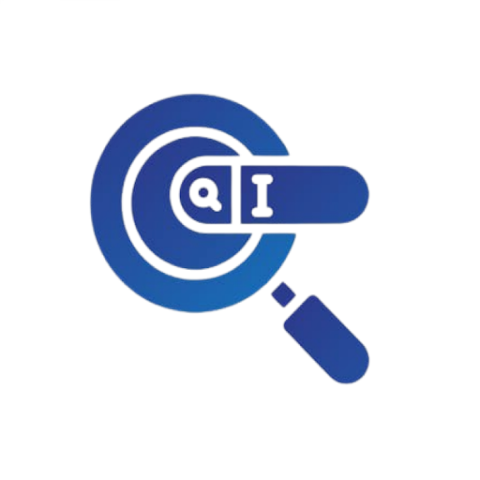
CRM + AI + Chatbots: Revolutionizing Customer Interaction Management
- In today's fast-paced, digital-first economy, customer expectations are rising. They demand instant responses, personalized experiences, and seamless service across channels. To meet these evolving demands, businesses are integrating CRM systems with Artificial Intelligence (AI) and chatbots, revolutionizing how they manage and optimize customer interaction management.
- This powerful combination not only improves efficiency but also enhances customer satisfaction, retention, and loyalty. Let's explore how CRM + AI + Chatbots are transforming customer relationships and what it means for modern enterprises.
Understanding the Synergy: CRM, AI, and Chatbots
CRM (Customer Relationship Management)
CRM software centralized customer data, tracks interactions, manages sales pipelines, and automates communication. It ensures businesses can nurture leads, close deals, and build long-term customer relationships.
Keywords: customer relationship management, CRM system, CRM software, relationship management software
AI (Artificial Intelligence)
AI in CRM brings predictive analytics, behavioral insights, sentiment analysis, and automation to the forefront. It allows businesses to anticipate customer needs and tailor engagement strategies.
Keywords: customer interaction management, CRM AI, intelligent CRM, AI-powered CRM
Chatbots
AI-driven chatbots are virtual assistants capable of handling real-time customer inquiries 24/7, reducing human workload and improving response time.
Keywords: customer support chatbots, AI chatbot, CRM chatbot, chat automation, conversational CRM
How AI and Chatbots Enhance CRM Functionality
a. Intelligent Customer Interaction Management
Traditional CRMs store customer data but require human input to engage. AI-enabled CRM systems analyze customer behavior and trigger automated, personalized responses based on past interactions, browsing habits, or support history.
For instance, if a user visits a pricing page multiple times, the system can prompt a chatbot to offer help or notify a sales rep to reach out. This proactive support significantly improves conversion rates.
b. Instant Query Resolution with Chatbots
AI-powered chatbots integrated with CRM can resolve frequently asked questions, provide product recommendations, and even guide customers through the sales funnel. This reduces wait time and improves the overall customer experience.
According to recent studies, chatbots can resolve up to 80% of common support queries, freeing up human agents for complex issues.
Benefits of Integrating AI and Chatbots with CRM
a. 24/7 Customer Support
AI chatbots don't sleep. Whether it's midnight or a public holiday, customers can get real-time answers anytime, increasing customer satisfaction and engagement.
b. Cost Efficiency
Reducing dependency on human agents means businesses can scale support without proportionally increasing costs. For small and mid-sized enterprises, this is a game-changer.
c. Personalization at Scale
AI segments customers based on preferences, history, and behavior. Combined with CRM data, this enables personalized marketing campaigns, product suggestions, and support interactions.
Example: A returning customer interested in "inventory management software" may be automatically offered a demo via chatbot, while new leads get a tour of all ERP modules.
d. Real-Time Insights
AI tools integrated into CRM platforms offer real-time analytics, tracking customer sentiment, sales performance, and support trends, allowing data-driven decision-making.
Use Cases of CRM + AI + Chatbots Across Industries
Retail & E-commerce
- Chatbots assist with order tracking, returns, and promotions.
- AI suggests upsell opportunities based on browsing behavior.
- CRM logs all customer interactions for future reference.
EdTech & LMS Platforms
- AI tracks student progress and recommends content.
- Chatbots help with course enrollment or FAQs.
- CRM captures learner engagement for personalized learning paths.
Healthcare & Hospital Management Systems
- CRM manages patient histories.
- Chatbots schedule appointments and send medication reminders.
- AI identifies high-risk patients for proactive care.
Key Features to Look for in AI-Enabled CRM Solutions
- Conversational AI Engine: Enables natural, human-like dialogue.
- Multi-channel Support: Engage customers via website, WhatsApp, Facebook Messenger, etc.
- Behavioral Analytics: Uses AI to predict customer needs.
- Smart Routing: Routes complex queries from chatbot to human agents via CRM ticketing.
- Knowledge Base Integration: Chatbots can pull answers from your existing documentation or helpdesk software.
Top CRM Platforms Using AI and Chatbot Integrations
- Salesforce Einstein
- HubSpot with ChatSpot.ai
- Zoho CRM with Zia AI
- Freshsales with Freddy AI
- Webseeder CRM -- Offering custom-built CRM chat integrations for SMEs and large enterprises.
Whether you're an enterprise looking for custom CRM development or a startup wanting to integrate chatbots for lead qualification, choose a vendor that specializes in CRM chatbot automation and AI CRM solutions.
Challenges to Consider Before Integration
- Data Privacy & Compliance: Ensure GDPR and local compliance for AI data usage.
- Training the AI Model: Your chatbot must be trained on industry-specific queries and customer profiles.
- Change Management: Teams need to be trained to work alongside AI and bots effectively.
Despite these challenges, the long-term ROI of integrating AI and chatbots into CRM systems is undeniable.
Conclusion
- CRM + AI + Chatbots is not a futuristic idea, it's today's competitive advantage. As businesses scale and customer expectations evolve, automating and optimizing customer interaction management will become the norm, not the exception.
- A well-implemented, AI-driven CRM strategy enhances every aspect of your operations, from sales to support, and positions your brand as a tech-savvy, customer-centric leader.
- If you're looking to deploy a custom CRM platform integrated with AI and chatbot functionality, reach out to the best software company in Indore, Webseeder Technologies , known for intelligent software solutions tailored for growth.
Frequently Asked Questions
AI enhances CRM by providing predictive analytics, behavioral insights, and automated personalized responses. It analyzes customer behavior patterns to trigger proactive engagement, such as prompting chatbots to offer help when users visit pricing pages multiple times. This transforms static CRM data into dynamic, actionable intelligence that improves conversion rates and customer experience.
According to recent studies, AI chatbots can resolve up to 80% of common support queries. This significantly reduces the workload on human agents, allowing them to focus on complex issues while providing customers with instant responses to frequently asked questions, product recommendations, and guidance through sales funnels.
The main benefits include: 24/7 customer support availability, cost efficiency by reducing dependency on human agents, personalization at scale through AI-driven customer segmentation, and real-time insights through analytics that track customer sentiment, sales performance, and support trends for data-driven decision-making.
Multiple industries benefit significantly: Retail & E-commerce (order tracking, upselling), EdTech & LMS platforms (progress tracking, course enrollment), and Healthcare (patient management, appointment scheduling). Each industry leverages the integration differently based on their specific customer interaction needs and operational requirements.
Key challenges include ensuring data privacy and GDPR compliance for AI data usage, properly training AI models on industry-specific queries and customer profiles, and managing organizational change by training teams to work effectively alongside AI and chatbots. Despite these challenges, the long-term ROI is substantial.
Our Clients






































































































Together, let's create something great;
we hope to see you soon!
